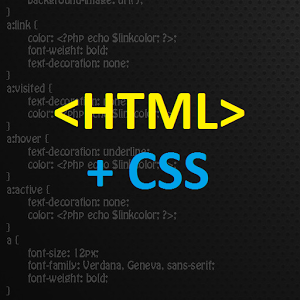 One of the things I have been working to learn in my copious spare time is web design. No, I’m not yet attempting to build pages (although if you are just starting out and don’t have the $$ for a top-tier professional, comment here and I will email you and see if we can work something out). The point is, I have been working on learning the intricacies of WordPress, but felt I needed to brush up on my HTML/CSS coding in order to follow along with the WP course pace, as the instructor flies through the HTML/CSS coding very quickly.
One of the things I have been working to learn in my copious spare time is web design. No, I’m not yet attempting to build pages (although if you are just starting out and don’t have the $$ for a top-tier professional, comment here and I will email you and see if we can work something out). The point is, I have been working on learning the intricacies of WordPress, but felt I needed to brush up on my HTML/CSS coding in order to follow along with the WP course pace, as the instructor flies through the HTML/CSS coding very quickly.
How is this relevant to this post (and writing)? Well, the HTML/CSS course, offered by the same instructor (who I like very much and is quite knowledgeable), is 9-hours and costs $29. I thought that an extremely fair price as anyone who’s taken a technical course with their company and/or from a “well-known” instructional institute, knows a one-day course normally runs in the neighborhood of $500 or more.
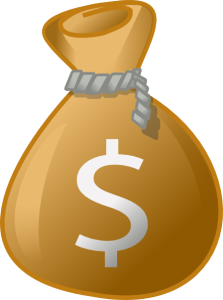 Here’s the rub: as I paid for the course, my mind was wandering a bit as I filled in the boring sign-up data and I started thinking “How does this 9-hour course at $29 compare, relatively, to the price of my books in the marketplace?” The main reason I wondered this is because I had no issue at all paying $29 for a course whose instructor I already knew, had experienced positively, and would deliver that for which I was looking.
Here’s the rub: as I paid for the course, my mind was wandering a bit as I filled in the boring sign-up data and I started thinking “How does this 9-hour course at $29 compare, relatively, to the price of my books in the marketplace?” The main reason I wondered this is because I had no issue at all paying $29 for a course whose instructor I already knew, had experienced positively, and would deliver that for which I was looking.
Imagine my dismay when my mind went from “wandering mode” to “focused mode” and I realized that this one-day course (approximately) was nearly TEN TIMES the cost of one of my entire novels. What was upsetting me, however. may not be what you expect. I still wasn’t put of at all by the price of the course. Nor, actually, was I terribly put off by the price differential, per se. Novels and technical training are, after all, at best “apples and oranges” and probably more like “apricots and Buicks”.
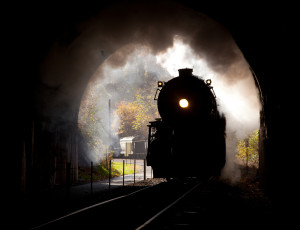 What hit me like a freight train on a dark track in the middle of a lightless tunnel was the magnitude of complaining I hear about the cost of eBooks while the world’s consumers go right on paying “normal” prices for most of their other goods. As if to punctuate this thought, it was not an hour later when one of my web posts received the below comment in regard to my third James Pruett Mystery, Honor Land (I determined NOT to post the comment for two reasons, which I will discuss in a moment)—here is the comment:
What hit me like a freight train on a dark track in the middle of a lightless tunnel was the magnitude of complaining I hear about the cost of eBooks while the world’s consumers go right on paying “normal” prices for most of their other goods. As if to punctuate this thought, it was not an hour later when one of my web posts received the below comment in regard to my third James Pruett Mystery, Honor Land (I determined NOT to post the comment for two reasons, which I will discuss in a moment)—here is the comment:
“Enjoyed first book. Just reying to get free copy next anazon want 4.99”
The reasons I did not approve the comment were these:
1) I planned on giving the comment, or at least the logic behind it, its due response (in this blog)
and
2) I didn’t want to embarrass the commenter by showing the world his/her inability to write two sentences without butchering the English language.
I’m sure by now you have either reached, or are very close to reaching, the reason for my frustration at this comment (sans grammar issues). It represents a quite prevailing wind of opinion about eBooks that has been swirling around the marketplace since the early days (2010-2011) when John Locke and Amanda Hocking (and a few others) permanently mortared our prized product—books—by devaluing them to 99 cents to make millions on volume sales then disappear into the night.
(Yes, I realize to blame the entire market shift on two authors is a bit hyperbolic, but every scandal must have its scapegoats.)
Why is it that a course on HTML/CSS, or a cup of coffee at one’s favorite latte shack, or an $800 iPhone, or a $55,000 Chevy, barely raise an eyebrow, but a novel—which not long ago cost over $20 in hardback and $12-15 in paperback—are suddenly entirely overpriced (in many readers’ minds) at $2.99-4.99? That’s three to five BUCKS! For a novel that took the writer months to construct and likely provided the consumer with at least a week (or even weekend) of pleasure.
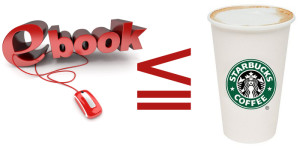
3D rendering of the word ebook connected to a computer mouse
Let me put it another way: how many four-dollar lattes does the average reader drink over the course of enjoying a novel?
Now please, don’t misunderstand: I am not implying that ALL (or even MOST) readers are oblivious to the value of a good book. However, ask yourself, honestly, where’s your price-line, even for an author you’ve already discovered and love? It’s just you, so be honest. $3? $4?
I receive a handful of emails a day from readers who LOVE the Sheriff Pruett series. LOVE. IT. All want to know only one thing:
When’s the next one out?
But I seriously wonder if I raised the price on my books to $7.99 or $9.99, like any well-known writer, if my fans would pay it. I can almost guarantee at least some wouldn’t. Not because they are bad people; it’s because of the Locke-Hocking Price-Conditioning Pandemic.
Yep, I’ve officially given it a name and therefore a place in history.
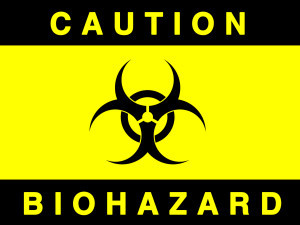 The Great Locke-Hocking Price-Conditioning Pandemic.
The Great Locke-Hocking Price-Conditioning Pandemic.
If I go out to buy a new pickup truck that my mind tells me, because of the ads I’ve seen; people with whom I’ve discussed the purchase; sites I’ve visited and seen comparable pricing, should cost me somewhere around $30,000, and the salesman starts off at $70,000—I’M GONE. It’s not that I’m a bad person, or that I want to ruin the poor salesman’s day, but I am conditioned to know what the expected (i.e. material) cost of the item should be.
The GLHPCP has (hopefully not permanently) altered normal consumer/readers’ perceptions of value-to-product for eBooks. It’s not the fault of the consumer/readers. They are not mean-spirited—the readers who write me are some of the kindest, most supportive (and thankful) people I’ve encountered in Cyberspace. But I would bet my left, uh, eyebrow that were I to raise my book price to $7.99, the next book—the one for which they are salivating—few (if any) would buy it.
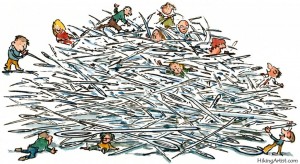 Now I sympathize with the reader, who is now (unfairly) faced with what I call “finding a needle in a stack of needles”. There is so much CRAP out there, and the consumer/reader is now tasked with sifting through it (a good friend just read an Indie book that, when it came to the pinnacle of the story—a proposal—the man fell to one knee and romantically asked “Will you many me?”
Now I sympathize with the reader, who is now (unfairly) faced with what I call “finding a needle in a stack of needles”. There is so much CRAP out there, and the consumer/reader is now tasked with sifting through it (a good friend just read an Indie book that, when it came to the pinnacle of the story—a proposal—the man fell to one knee and romantically asked “Will you many me?”
But THIS is why unknown authors run promos, and give away their books for free (or for 99 cents—same as a comb in the Dollar Store): so that the reader can sample their wares without risk. Not because a book is worth NOTHING.
I’ll admit, it’s really frustrating. I try to find another market—morning lattes; pocket and tablet electronics; bagel stores—anywhere where the prices have been forced to drop to a few dollars (or in the case of lattes or a dozen bagels, a few cents).
There are none. Prices are going up, yet the Starbucks near my house has a line of cars at the drive-thru that wraps around the building from 5AM to noon. There’s so much new construction of housing “Starting in the low $400,00’s” that the roads are literally packed with every manner of construction vehicle. 75% of the cars on the road with me, if not new, are no more than a year or two old.
But a book?
50-150,000 words of wonderful story.
Months of the author’s blood, sweat, tears, and fingertip calluses.
Hours and hours of entertainment.
Three bucks? Four?
Outrageous.
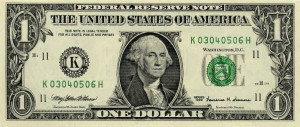 99 cents or FREE. That is what many readers expect. Probably in many cases, subconsciously, but try to sell an eBook for more than a few dollars and you’ll soon discover that the bar is set abnormally low in the literature marketplace.
99 cents or FREE. That is what many readers expect. Probably in many cases, subconsciously, but try to sell an eBook for more than a few dollars and you’ll soon discover that the bar is set abnormally low in the literature marketplace.
Do I have an answer? Not really. I won’t insult the readers for simply viewing the marketplace. I suppose the only antidote that has any chance of working is time. Perhaps, over time, readers will again realize what books really mean to them—and to society as a whole.
It has gotten better. I remember literally begging authors not to permanently price all their books at 99 cents (even though many of them were overpriced even at that number). “Use it as a promotion, yes, but otherwise you are devaluing not just the marketplace, but our profession.”
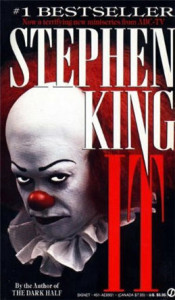 When I was 14, 15, and 16, I used to devour Stephen King (not literally—his writing). This was, for perspective, in the eighties. Thirty plus years ago. Even setting inflation aside, I used to wait, impatiently, for the new King book (and for those who remember how it worked then, most authors wrote a book a year, and it always came out first in hardback and then, maybe six months to a year later, paperback). But if you loved an author, you had to have the hardback, as soon as it came out.
When I was 14, 15, and 16, I used to devour Stephen King (not literally—his writing). This was, for perspective, in the eighties. Thirty plus years ago. Even setting inflation aside, I used to wait, impatiently, for the new King book (and for those who remember how it worked then, most authors wrote a book a year, and it always came out first in hardback and then, maybe six months to a year later, paperback). But if you loved an author, you had to have the hardback, as soon as it came out.
I remember the pure elation at seeing that “new book display” at the front of (Waldenbooks, Barnes & Noble, Borders—which I don’t think actually existed yet). A 14-year-old kid slapping down his TWENTY-SOME BUCKS. I wasn’t rich. My parents were teachers, with a family of five.
I sacked groceries.
And I never missed a new King release (among other authors: Terry Brooks, John Grisham, Dean Koontz).
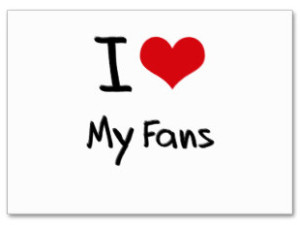 I DO know there are a lot of readers out there who already know (and agree) with everything I’ve said. And if I could afford to put you all on a private jet for the Bahamas or Hawaii to celebrate my appreciation for you, I would. Swear to God.
I DO know there are a lot of readers out there who already know (and agree) with everything I’ve said. And if I could afford to put you all on a private jet for the Bahamas or Hawaii to celebrate my appreciation for you, I would. Swear to God.
And those positive emails you send? The ones like this:
“I never write authors, give stars or say anything kind–but you are the exception. I LOVE your books. Raised in Casper, Laramie for undergrad then returned to teach a few years in Lander and Laramie–I love my ex-state. You are the only author to get Wyoming right–culture and atmosphere and location.
Please write lots more Wyoming.”
Please keep them coming. I always respond and say how much the love keeps we writers going and that readers are the lifeblood. You are. And you are far more than appreciated—you are everything.
The economics of it all? As with everything, I’m sure one day equalization will happen.
The blank page is dead…long live the blank page.
